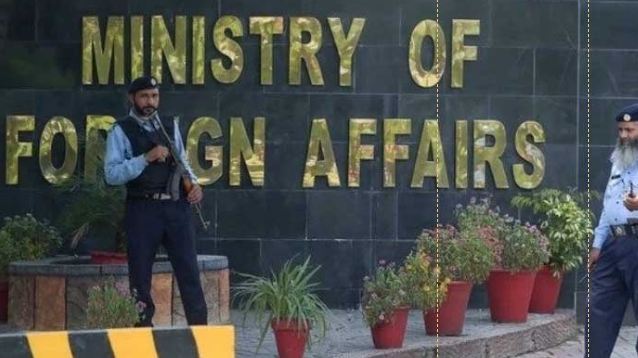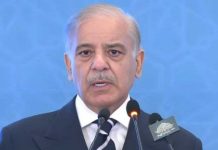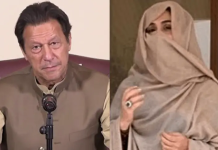ISLAMABAD, JUL 30: Pakistan has rejected the Indian leadership’s “fabrications” over the Pahalgam attack, saying that New Delhi should stop acting as judge, jury, and executioner.
“Pakistan categorically rejects the baseless assertions and provocative claims made by the Indian leaders during the Lok Sabha debate on the so-called ‘Operation Sindoor’,” said FO spokesperson Shafqat Ali Khan on Wednesday.
Indian Home Minister Amit Shah, a day earlier, claimed before the parliament that Indian security forces recovered Pakistani voter identity cards and locally made chocolates from three men killed in a gun battle in Indian Occupied Jammu and Kashmir (IIOJK), who according to him were involved in Pahalgam attack.
Addressing the same session, Prime Minister Narendra Modi also denied that any world leader pushed India to stop fighting Pakistan during their recent conflict, after repeated claims by US President Donald Trump that he had brokered peace.
The South Asian rivals fought an intense four-day conflict in May that took more than 70 lives on both sides before Trump announced a ceasefire between the nuclear-armed neighbours.
“The statements reflected a dangerous tendency to distort facts, justify aggression, and glorify conflict for domestic consumption,” the spokesperson added.
“The world knows that India attacked Pakistan without any verifiable evidence or a credible investigation into the Pahalgam Attack. During the intervening night of 6 and 7 May 2025, India’s targeting of the alleged terrorist infrastructure resulted actually in the martyrdom of innocent men, women, and children.”
“India failed to achieve any of its strategic objectives. On the other hand, Pakistan’s resounding success in neutralising the Indian fighter jets and military targets is an indisputable fact.”
The spokesperson asked the Indian leaders to acknowledge the losses incurred by their armed forces and accept the active role played by the third parties in realising the ceasefire, instead of misleading their compatriots.
“India did not avail itself of the immediate offer made by the Prime Minister of Pakistan for a transparent and independent probe into the Pahalgam attack.”
Slamming the Indian attacks on Pakistan, Shafqat said that New Delhi chose the path of belligerence and aggression. He added that India acted as a judge, jury, and executioner at the same time.
“Against this backdrop, any claims regarding the so-called “Operation Mahadev” do not hold any significance for us.”
“The account given by the Indian home minister is replete with fabrications, leading to serious questions about its credibility.”
“Is it a mere coincidence that the alleged perpetrators of the Pahalgam Attack were killed at the start of the Lok Sabha debate?” Shafqat questioned.
“We also reiterate our unequivocal rejection of the ceaseless Indian statements on establishing a ‘new normal’ in bilateral relations. As we have already shown through our resolute actions in May 2025, we shall forcefully counter any future aggression.”
Shafqat said: “For us, the only ‘normal’ in bilateral relations is respect for sovereignty and territorial integrity, and adherence to the principles and purposes of the UN Charter.”
Nuclear blackmail
The FO spokesperson said that the Indian narrative of an alleged “nuclear blackmail” by Pakistan was a “misleading and self-serving construct”, and an attempt to veil its own escalatory impulses while shifting blame onto Pakistan.
“It is well known that Pakistan deterred India through its conventional capabilities, affirming that discipline and restraint remain its guiding principles.”
Shafqat also registered disapproval of the Indian leaders’ misplaced assertions regarding the Indus Waters Treaty.
He said that India’s decision to hold the Treaty in abeyance shows its blatant disregard for the sanctity of international treaties and strikes at a fundamental pillar of regional cooperation.
“Instead of taking pride in a unilateral and illegal move, India must immediately fulfil its treaty obligations,” he said, adding that India’s continued reliance on disinformation, jingoism, and chest-thumping risks destabilising South Asia.
“However, as a responsible country,” said Shafqat and concluded his remarks: “Pakistan remains committed to peace, regional stability, and a meaningful dialogue for resolution of all outstanding issues, including the core dispute of Jammu and Kashmir.”

















